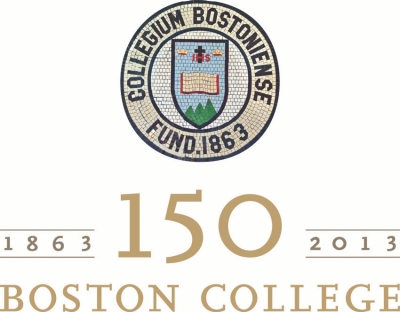
By
Presidents of leading American universities will convene at Boston College next week for a two-day conference that will address the challenges and distinctive contributions of religiously affiliated colleges and universities to the educational enterprise in the United States.
“Religion and the Liberal Aims of Higher Education,” which is being held as part of the University’s Sesquicentennial Celebration, will take place Nov. 8 and 9 in the Heights Room of Corcoran Commons. The conference is free and open to the public.
Participants in the conference will also include scholars and writers, who will discuss what characteristics set religious colleges and universities apart from their secular peers, when both are committed to offering a liberal education.
“We are thrilled to host a distinguished group of scholars and university presidents to consider an issue at the very heart of BC’s historic enterprise,” said Boisi Center for Religion and American Public Life Associate Director Erik Owens, who is leading the conference with Boisi Professor of Education and Public Policy Henry Braun.
A highlight of the conference will be the Nov. 9 panel, “The View from the Top,” featuring School of Theology and Ministry Dean Mark Massa, SJ; University of Notre Dame President John I. Jenkins, CSC; Bryn Mawr College President Jane McAuliffe; and Wheaton College President Philip G. Ryken. Later that day, University President William P. Leahy, SJ, will conclude the conference with closing remarks.
The speakers, according to Owens, “will bring deep historical knowledge, personal experience and philosophical reflection to bear upon one of the thorniest questions in contemporary higher education: Are the formative goals of religion and liberal education at odds? What role should religiously affiliated colleges and universities — and liberal arts colleges and universities — play in an American higher educational landscape dominated by secular pre-professional training?”
Owens and Braun, respectively, will deliver the day’s opening remarks on Nov. 8 and 9.
“This symposium offers the BC community a unique opportunity to sit in on, and participate in, a series of conversations about the different flavors that religiously affiliated institutions impart to liberal education,” said Braun, adding that the event will build on questions raised by Harvard President Drew Gilpin Faust at the inaugural Sesquicentennial Speakers Series lecture Oct. 10.
“Distinguished leaders in higher education are going to discuss a broad range of issues of great importance to all undergraduate institutions with a commitment to liberal education.”
Wake Forest President Nathan Hatch, who will present the keynote address on Nov. 8, and former University of Richmond President Richard Morrill, who will deliver the Nov. 9 keynote, will join other educational leaders from Columbia, Harvard and Yale, among others, at the conference.
Other panel topics at the conference include “Historical Perspectives” and “Dynamic Tensions,” with New York Times columnist Mark Oppenheimer and Vanity Fair magazine editor-at-large Cullen Murphy serving as moderators.
“This isn’t just an academic event for scholars of religion and education, but rather a chance for all of us at Boston College to think about what we do, collectively,” Owens said. “We hope that everyone with a stake in BC’s educational and religious vitality will come to some or all of the conference sessions, and that they will contribute their own considered opinions to the conversation.”
The event “is both a celebration of BC’s historical successes as a Jesuit, Catholic liberal arts university and a call for the very best thinkers of our generation to help us reflect on BC’s mission in the years ahead,” Owens said.
“BC’s leaders have made major commitments to the project of liberal education in recent years, from the creation of the ILA to the upcoming dedication of a huge new humanities building in Stokes Hall. It is an exciting time to be at Boston College.”
While the conference is free and open to the public, advance registration is requested by organizers. For details, including the full conference schedule and participant information, see http://tinyurl.com/9q3j2xa.



